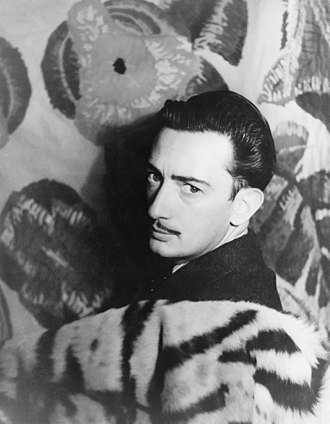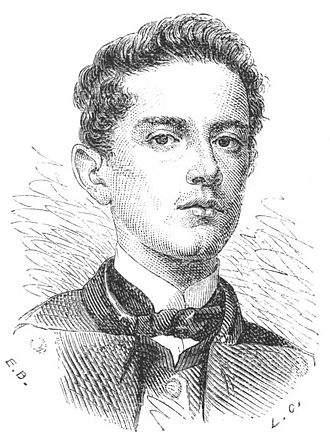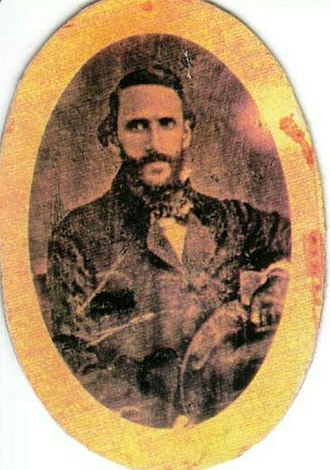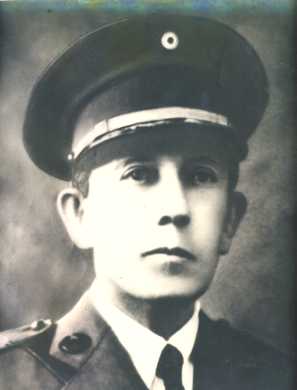Discover Your Roots
SIGN UPDiscover Your Roots
SIGN UPSalvador is a male name of Spanish origin, meaning "Savior." It is derived from the Catalan, Spanish, and Portuguese word for "salvation" or "saviour." The name has a rich cultural and historical significance, with various references in arts, entertainment, and media. In music, Salvador is associated with a Christian band, albums, and songs. Additionally, it has been used in literary works and as the name of a fictional character in a popular video game series. Geographically, Salvador is linked to several places across the globe, including Brazil, Canada, El Salvador, the Philippines, the United States, and elsewhere. The name also has connections to a red wine grape and a protein kinase involved in the Hippo signaling pathway. Overall, Salvador carries a powerful and meaningful connotation of salvation and serves as a prominent name in various cultural contexts worldwide.

Salvador Dalí, born Salvador Domingo Felipe Jacinto Dalí i Domènech, Marquess of Dalí of Púbol, was a Spanish surrealist artist known for his technical skill and striking, bizarre images. Born in Figueres, Catalonia, Dalí was influenced by Impressionism and the Renaissance masters before becoming attracted to Cubism and avant-garde movements. He joined the Surrealist group in 1929 and is best known for his work "The Persistence of Memory." His artistic repertoire included painting, sculpture, film, graphic arts, fashion, and photography. Dalí's major themes included dreams, the subconscious, sexuality, religion, and science. His eccentric public behavior often drew more attention than his artwork, and his support for the Francoist regime and commercial activities were controversial. Dalí's life and work influenced other Surrealists, pop art, popular culture, and contemporary artists. Two major museums, the Dalí Theatre-Museum in Figueres, Spain, and the Salvador Dalí Museum in St. Petersburg, Florida, U.S., are devoted to his work. Born in 1904 in Figueres, Dalí's early life was marked by family tragedies and artistic influences, leading to his unique and iconic surrealist style.

Salvador Agustín Francisco de Paula de Iturbide y Marzán, born on September 18, 1849, was the grandson of Agustín de Iturbide, Mexico's first emperor. He was adopted by Emperor Maximilian I and Empress Carlota, along with his cousin, Agustín de Iturbide y Green. They were granted the title Prince de Iturbide and style of Highness by imperial decree in 1865. Salvador married Baroness Gizella Mikos de Taródhaza in 1871 and had a daughter, Maria Josepha Sophia de Iturbide. He became friends with Carlos, Duke of Madrid, and was a member of the Order of the Grand Cross of Our Lady of Guadalupe. Salvador passed away in Corsica due to a ruptured appendix. Emperor Maximilian's decree outlined the titles and privileges granted to Salvador and his cousin. His life and connections spanned across Mexico, Hungary, France, and Italy, leaving a legacy intertwined with European aristocracy and Mexican imperial history.

Salvador María de Iturbide y Huarte (17 July 1820 – 7 June 1856) was a Mexican prince and the eighth child of Agustín I of Mexico and Empress Ana Maria Huarte. He married Doña María del Rosario de Marzán y Guisasola in 1845, and his descendants are the current pretenders to the Mexican Throne through his son Salvador de Iturbide y de Marzán. Salvador was educated in Paris and Vienna and served in the Secretary Mexican Legation in Washington, D.C. He tragically died in a boating accident on the Tepic River, Nayarit, on 7 June 1856. Salvador was designated as a Mexican Prince at the age of two and was styled Highness by the Mexican Congress. He was the third in line to the throne, and when Maximilian I of Mexico was crowned emperor, he sought the adoption of Salvador's son. The Sovereign Mexican Constituent Congress decreed the hereditary nature of the Mexican Monarchy and outlined the order of succession to the throne. Salvador's lineage and the decrees of the Mexican Congress are important aspects of Mexican royal history.

Salvador Castaneda Castro (6 August 1888 – 5 March 1965) served as the President of El Salvador from 1945 to 1948, following his role as the Interior Minister under President Maximiliano Hernández Martínez. Castro's presidency was marked by significant political and social upheaval, including the aftermath of the 1944 Salvadoran uprisings and his government's response to labor unions and civil dissent.His ascension to power occurred during a period of martial law, and his presidency saw both economic recovery and the consolidation of elitist rule. Castro's administration faced opposition from labor unions and dissident groups, leading to suppressive measures and arrests. His attempt to extend his term ultimately led to his ousting in a coup by younger military officers in 1948.During his presidency, Castro engaged in discussions with Guatemalan President Juan José Arévalo regarding the potential formation of a Central American Union, culminating in the signing of the Pact of Santa Ana and the Pact of the Confederate Union of the Central American States. However, this initiative was never fully realized.Castro's tenure as president was marked by complex political and social challenges, shaping the trajectory of El Salvador's history during the mid-20th century.

Salvador Flores (Jose Salvador Ramon Flores) (ca. 1806–1855) was a key figure in the Texas Revolution, serving as a volunteer in the Texan Army and playing a crucial role in organizing and leading Texian volunteers during the fight for Texas independence from Mexico. Born into a prominent ranching family in Béxar, Texas, Salvador Flores and his brothers were actively involved in the Texas Revolution, participating in significant battles such as the Battle of Gonzales and the Battle of Concepción.During the revolution, Flores demonstrated exceptional leadership and bravery, rising through the ranks to become a Captain and leading Texian troops in various engagements. His efforts extended beyond military actions, as he also played a vital role in protecting ranches and settlers in Texas during the Republic years. Salvador's dedication to the cause of Texas independence and his contributions to the Texian Army were instrumental in the eventual success of the revolution.Salvador Flores' legacy as a courageous and influential figure in Texas history endures, and his contributions to the fight for independence continue to be remembered and celebrated. His leadership and unwavering commitment to the Texian cause have left a lasting impact on the history of Texas and the broader narrative of the struggle for freedom and self-determination.
All images displayed on this page are sourced from Wikipedia or Wikimedia Commons.We use these images under their respective Creative Commons or public domain licenses. Wherever applicable, author attributions and license information are provided. If you believe an image is used incorrectly or outside its license terms, please contact us so that we can review and correct the issue.